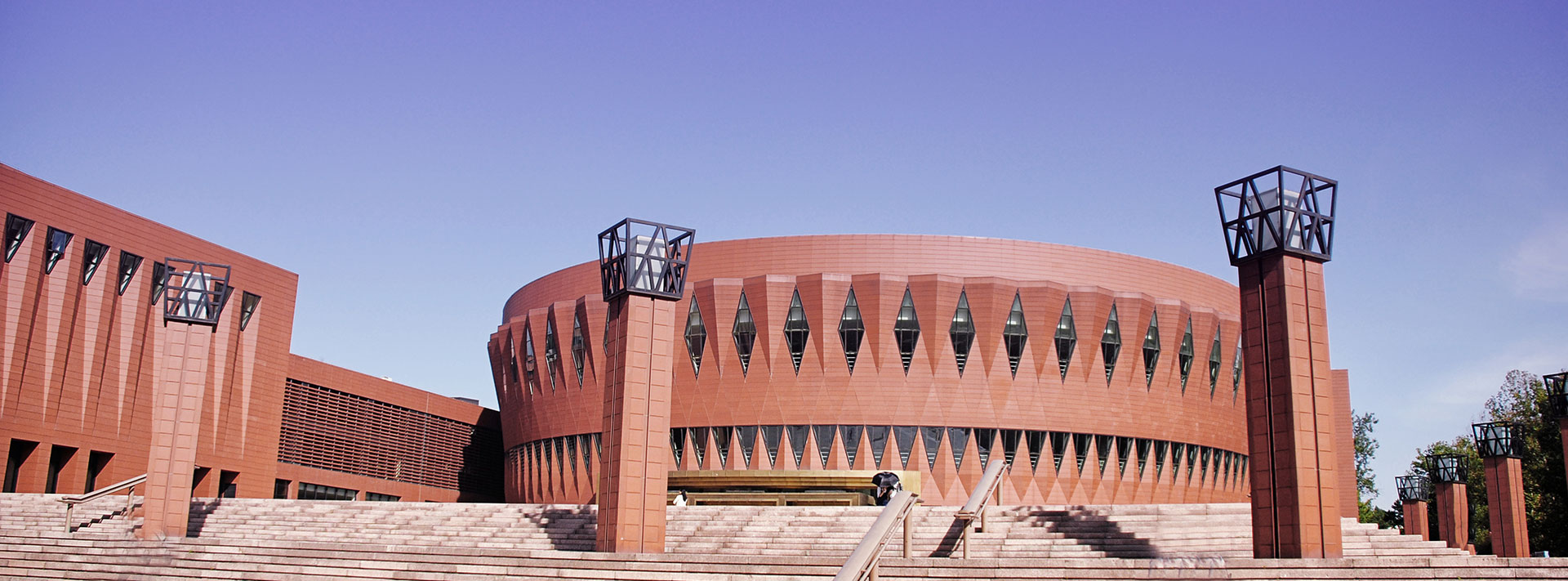As a leading legal education and research institution in China, Tsinghua Law School has been taking the promotion of the comprehensive reform of academic research methods in the legal area in China and integration of law and other social sciences as its historic mission. Coase-Sandor Institute for Law and Economics of University of Chicago has won worldwide fame for its achievements made in the intersection of the legal area and social sciences, especially in the field of law and economics. At the end of 2017, the two sides agreed that, starting in 2018, the Chicago-Tsinghua Youth Faculty Forum on Legal and Social Science will be held annually in Beijing. Using English as the working language with round table form, the forum invites young scholars to submit their draft papers. Shortlisted candidates will be selected by the forum organizers, and the forum will invite senior experts to give some advice, which can help the author to further modify the paper. The Forum encourages frank exchange, serious and constructive academic criticism to jointly improve academic research methods and level.
The first forum was successfully held from May 31, 2018 to June 1 at the University of Chicago Center in Beijing and Tsinghua Law School. Twelve young faculty members from law schools in the greater China area submitted the first draft of their papers and delivered keynote report. Director of the University of Chicago Law and Economics Research Institute Professor Omri Ben Shahar, Professor William Hubbard, Professor Richard McAdams, Assistant Professor Adam Chilton of the University of Chicago Law School, Associate Professor Zhang Taisu from Yale University Law School, Prof. Xu Defeng and Associate Professor Chen Ruoying from Law School of Peking University, Professor Cheng Jinhua and Associate Professor Jiang Hongzhen from Law School of Shanghai Jiaotong University, Associate Professor Liao Zhimin from International Financial Law School of East China University of Political Science and Law, Professor Lu Haitian from School of Accountancy and Finance, Hong Kong Polytechnic University, Professor Shen We from School of Law, Shandong University, Professor Wang Yuyu from Southwest University of Political Science and Law, Professor Zhao Jun from Zhejiang University Law School, Assistant Professor Charles Loeffler from University of Pennsylvania Law School, and Associate Professor Cui Guobin from Tsinghua Law School were invited as members of the judging panel.
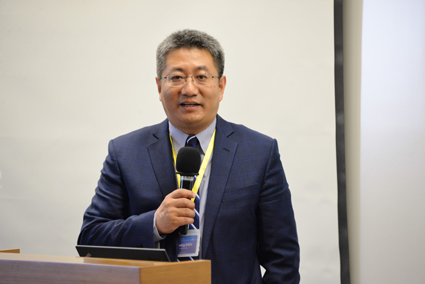
Dean Shen Weixing giving remarks
May 31, 2018 witnessed the first day of the forum, which was held at the University of Chicago Center in Beijing. Prof. Shen Weixing, Dean of Tsinghua Law School and Professor Omri Ben Shahar, Director of the University of Chicago Law and Economics Research Institute, delivered speeches at the opening ceremony. Professor Shen first expressed his sincere welcome to all the guests, and then explained the significance of organizing the “Chicago-Tsinghua Young Faculty Forum on Law and Social Science ". It is an important part of the efforts of Tsinghua University Law School in promoting the innovation of legal research approaches. Tsinghua Law School hopes to work with the University of Chicago Law School to build an international academic exchange platform, so that young scholars from home and abroad have the opportunity to showcase their latest research findings in the field of law and social science, and to obtain constructive comments from senior experts. As a result, more young Chinese legal scholars can pay attention to the research approach of "law and social science”, which helps us to get prepared for the new trend of Chinese legal research.
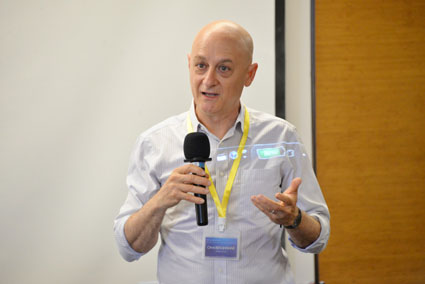
Professor Omri Ben Shahar giving remarks
The two-day long forum is divided into four sessions. Two sessions for each day. Session one is Governance and Institution in China. Chaired by Prof. Omri Ben Shahar, this session consists the following presentations.
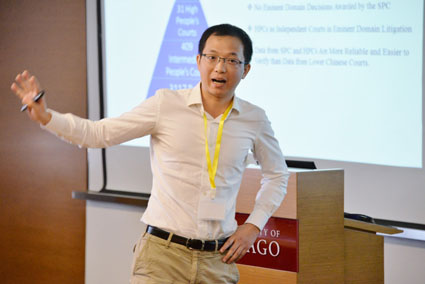
Presentation by Assistant Professor Qiao Shitong
Challenging Eminent Domain in the High People’s Courts: Procedure is the Key! By Assistant Professor Qiao Shitong, Hong Kong University Law School.
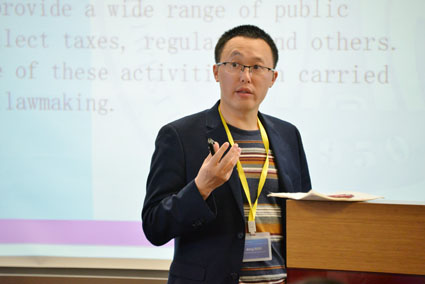
Presentation by Associate Prof. Wan Jiang
Decentralizing Authoritarianism: A Study of China’s Dramatic Expansion of City Lawmaking Power by Associate Prof. Wan Jiang, School of Law of Southwest University of Political Science and Law.
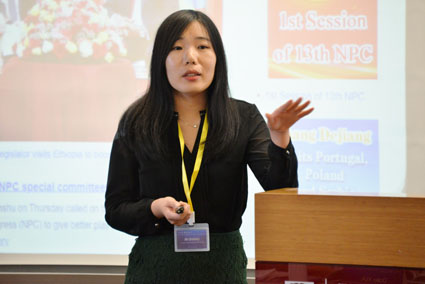
Presentation by Assistant Prof. Zhang Xin
Information Technology And E-Participation: An Empirical Study On Online Solicitation of Opinions on Lawmaking by the National People’s Congress by Assistant Prof. Zhang Xin, School of Law of University of International Business and Economics.
Session two is Corporate and Financial Law, chaired by Professor William Hubbard. Following scholars explained their study:
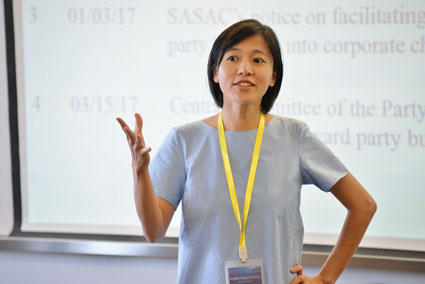
Presentation by Associate Prof. Zhang Huyue
The Determinants Of Political Control In State-Owned Enterprises: Evidence From Charter Amendments by Associate Prof. Zhang Huyue from School of Law of Hong Kong University.
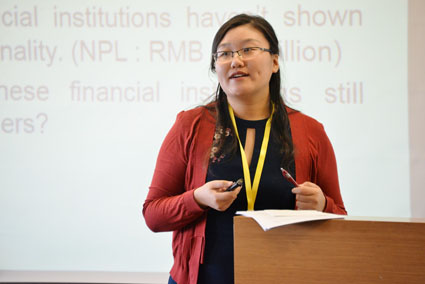
Presentation by post doctor student Xia Daile
Rethinking state control over the PRC financial system: The black box of proactive intervention by post doctor student Xia Daile from Tsinghua Law School.
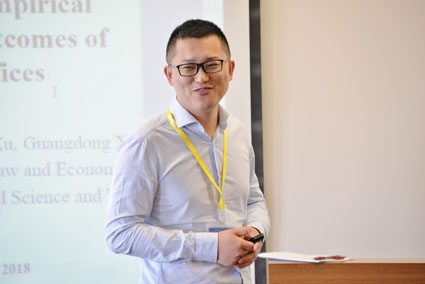
Presentation by Associate Professor Xu Wenming
Understanding Public Enforcement of Securities Law in China: An Empirical Analysis of the Enforcement Outcomes of CSRC’s Regional Offices by Associate Professor Xu Wenming from Law and Economics Institution of China University of Political Science and Law.
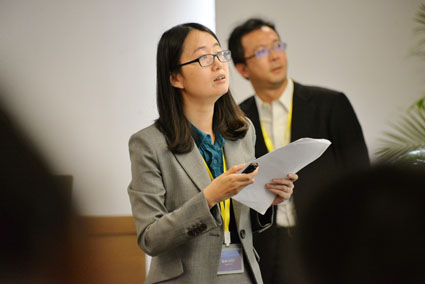
Presentation by Associate Prof. Gao Simin
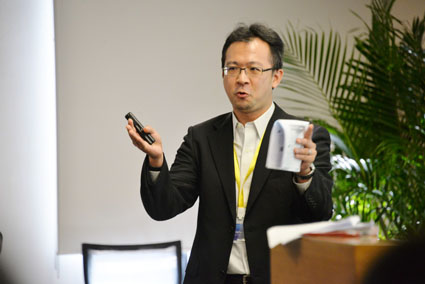
Presentation by Associate Prof. Chen Zhaohong
Rematurity and Incubator: Tradition, Transplantation and Bifurcation of Financial Development and Law in China by Associate Prof. Gao Simin from Tsinghua Law School and Associate Prof. Chen Zhaohong from School of Law of Singapore Management University.
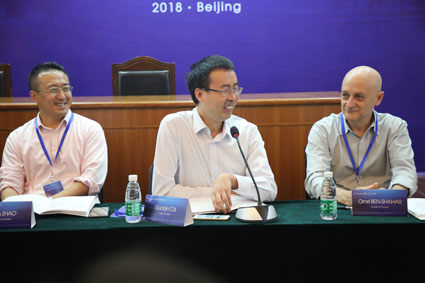
Opening Remarks by Prof. Cui Guobin and Prof. Omri Ben-Shahar
The forum continued on June 1. Prof. Cui Guobin, Vice Dean of the Law School of Tsinghua University, and Professor Omri Ben-Shahar from the University of Chicago addressed the opening ceremony.
There are two sessions on the second day of the forum. Session three, Cutting Edge Topics in Law and Economics, is chaired by Prof. Cui Guobin. Following scholars give presentation on their latest study.
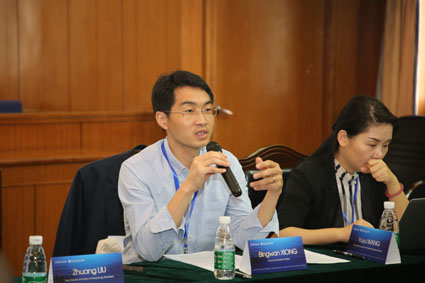
Presentation by Lecturer Xiong Bingwan
Self-Regulation in the Shadow of Public Power: Driving China’s Private Taxicabs out of Regulatory Dark Zone by Lecturer Xiong Bingwan from Renmin University of China Law School.
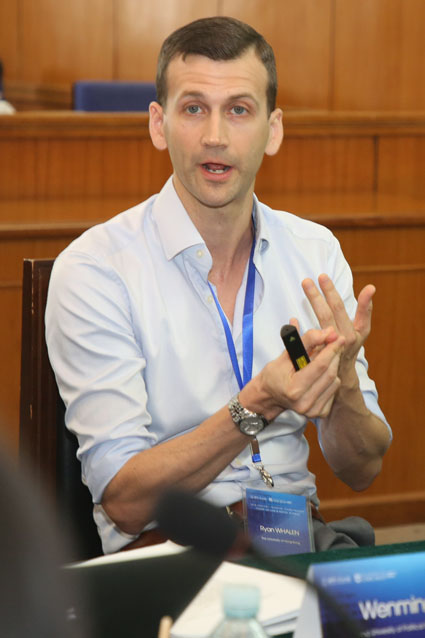
Presentation by Prof. Ryan Whalen
A Network Theory of Patentability: Towards An Empirical Measure Of Patent Nonobviousness by Hong Kong University Law School Assistant Prof. Ryan Whalen.
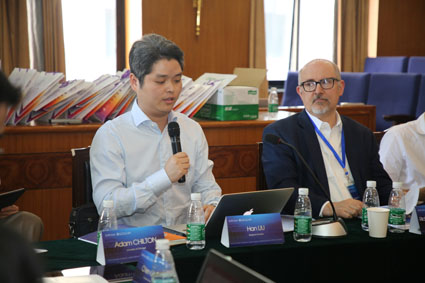
Presentation by Associate Prof. Liu Han
The Chicago School in Beijing: Two Faces of Law and Economics in China by Associate Prof. Liu Han from Tsinghua Law School.
And the fourth session chaired by Associate Professor Chen Ruoying from Peking University Law School is Judicial Behavior. Following presentations are delivered.
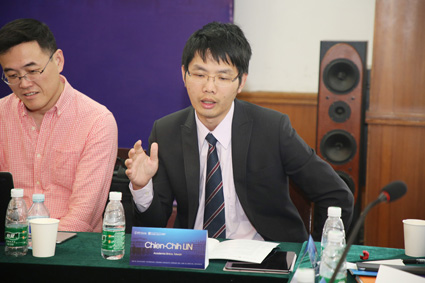
Presentation by Assistant Researcher Chien-Chih Lin
Do Justices’ Scholarly Backgrounds Affect the Writing of Separate Opinions in Taiwan Court? by Assistant Researcher Chien-Chih Lin.
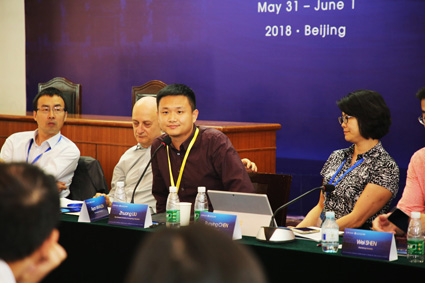
Presentation by Assistant Professor Liu Zhuang
What Is the Leviathan Hiding? “Missing Cases” and Selected Judicial Information Disclosure in China by Assistant Professor Liu Zhuang from the Chinese University of Hong Kong, Shenzhen.
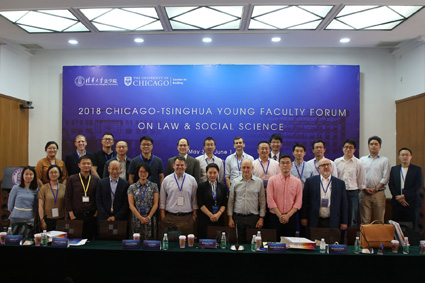
Group photo
The First Chicago-Tsinghua Young Faculty Forum on Law and Social Science achieved grand success with creative topics and unique academic thoughts, which all brought about enthusiastic discussions from all participants. Straightforward and constructive advices were provided to help young scholars to adjust their thoughts, improve their thesis quality to publishable level on academic journals. Every participant, either senior experts or young faculty, learned from the forum. Organizer of the forum hopes that the Second Chicago-Tsinghua Young Faculty Forum on Law and Social Science can attract more scholars and professionals in a wider range. With its impact expanding, the forum will become an important force for legal academic reform in China.
The two-day long forum is divided into four sessions. Two sessions for each day. Session one is Governance and Institution in China. Chaired by Prof. Omri Ben Shahar, this session consists the following presentations.


